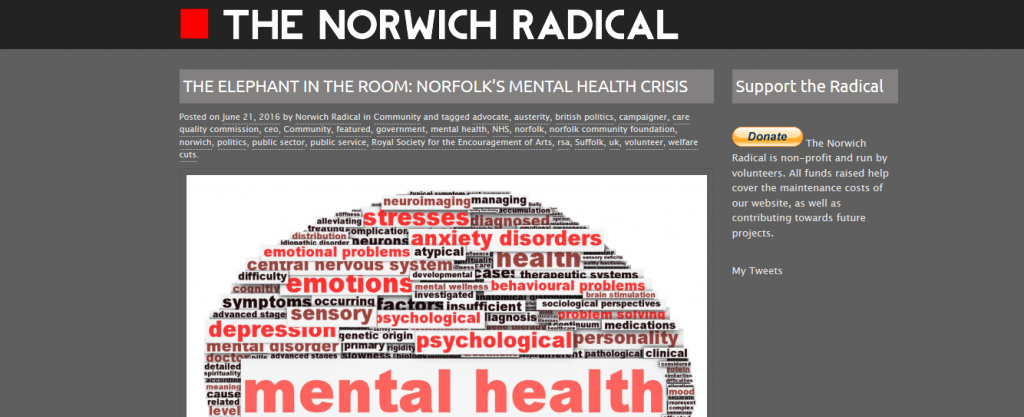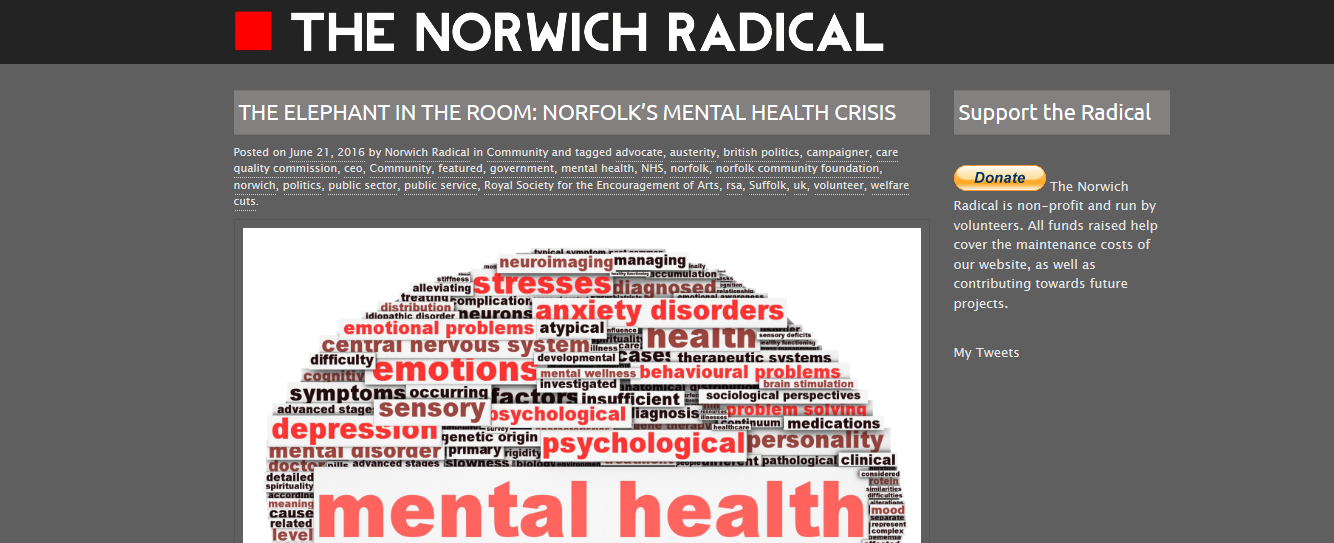Hannah Rose reports in The Norwich Radical from the recent RSA event:
Instead, I was perturbed by the oddly formal sense of occasion — cheese and wine were offered on arrival — and I was given instructions to mingle. I had the distinct feeling that I was definitely at the wrong meeting. Only around fifty chairs were set out — where was everybody? Then a quick show of hands told me much of the audience was made up of RSA ‘fellows.’ That’s not to say that they did not have their own vested interests in mental health — the organiser spoke candidly of his own experiences —but the number of ‘fellows’ suggested that this was an exclusive event. Surely, if we are to build a dialogue around the failure of the government to deliver a public service, then service users must be at the heart of this conversation?
This was the elephant in the room — or, as was the case, not in the room — and we were eating canapés.
Stability and the need to identify and untangle the politics which prevent patients from receiving early treatment clearly weren’t thought of as achievable amongst those at the RSA evening, who seemed to agree that the public sector is dead – a message upheld by the Norfolk Community Foundation. “The public sector is not the answer,” said their CEO, whilst making reference to the spurious claim that New Labour “spent all the money.”
This notion, that public money is somehow being squandered on mental health provision, pivots around a dangerous idea: “It accepts the narrative that [the government] are not going to fund mental health services,” the campaigners said. “Who are the deserving and undeserving in our country? Who decides?” This atmosphere was quickly picked up on by the first audience member to speak up when questions were opened, and he made the most salient point of the evening: “This is not a Victorian society. We cannot expect charities and private donors to address the issue of mental health care.”
Click on the image below to read the beautifully written article on The Norwich Radical website:


Worrying evening. I question the lack of public involvement- where do social enterprise grants come from if not public money?As a carer I am concerned at this ad hoc group of hopefully well meaning people. what are their aims and qualifications to deliver care? How does one find out what’s available? Who monitors their performance? What checks have been carried out on staff members’ records? What supervision is available to staff? As good supervision helps safeguard SUs. From experience there is a great difference between organisations’ charges. If one organisation charges half as much as another the customer wonders why. Concerns are raised. A long standing charity charges more, however, having received care for several years I know staff are effective, trained, professional and well supervised. This costs. I do not want workers to be exploited.
My greatest corcern is that a collection of uncontrolled do gooders will attract people with evil intent. The media is fullof cases where opportunities to save the vulnerable from abuse are missed. Lack of control and lack of experienced managers/employers gives abuseres free range. Police record checks only expose those who’ve been caught. In the 21st century we have greater understanding of abuse and how abusers gain access to the vulnerable than our Victorian ancestors.
LET’S NOT TURN THE CLOCK BACK
Excellent write-up
great article